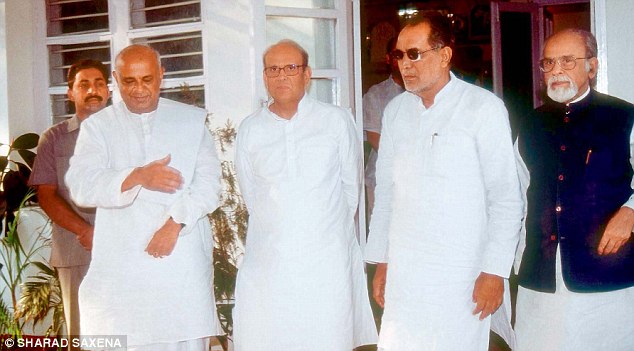The idea of the third front has been floated again and again in the political arena of the country. It has been tried two times in the political history of the country. First time under the leadership of V P Singh in 1989 when Congress party became hugely unpopular due to the Bofors Scam. And for the second time in 1996, Atal Bihari Vajpayee government fell in just 16 days. This political history of the third front suggests that any third front government is highly unstable. Coalition governments headed by Morarji Desai, Charan Singh, V. P. Singh, Chandra Shekhar, H. D. Deve Gowda, and I. K. Gujral could not complete one year in the office. If a government is busy in managing its numbers in the parliament then no one can expect policy reforms from them. In the absence of policy reforms, political stability and the economic growth of the country becomes vulnerable.
The GDP growth fell to 4.6 percent in 1991-92 when V. P. Singh and Chandra Shekhar governments’ fell and 2.8 percent in 1996-97 when the Deve Gowda regime fell. The V P Singh government and later Chandra Shekhar government made the public finances of the country so bad that the country faced the Balance of Payments (BoP) crisis. The country faced the BoP crisis due to various reasons including the rise in oil prices in the international market but the main reason behind this was the sharp dip in the foreign investment in the country. The Indian economy posts Net Export deficit every year so our BoP depends on the foreign investment to a large extent. Economist Kirit S Parikh who had been a member of EAC of Prime Minister V.P.Singh and Chandra Shekhar writes that “A three-month postponement of half of the total investment means a 16 percent fall in investment. This could easily result in lowering of growth rate by one percentage point”.
The BoP crises resulted in embarrassment for the country as we have to mortgage the country’s gold to Bank of England. Although the successive governments used this opportunity to liberalize the Indian economy but this tells us about the prospective situation in which a coalition government put the country. They can be harmful to the economy and national integrity of the country. If the investment is low and the public finance is in shambles then an increase in the expenditure on development programs cannot be expected.
So any third front coalition government in 2019 will put the government in the same position as in 1989 and 1996. The foreign investment will fell to a new low, the GDP growth will fell down and the country could face a BoP crisis. In our country where net export is negative, the BoP could not be sustained without foreign investment. These are the immediate effects of a third front government, the larger implications will be the policy paralysis and slow implementation of the ongoing projects. The advances made by the government in the field of foreign relations, welfare programs, national security, economic reforms, administrative and judicial reforms will be halted. So with a third front government in power, we could expect only worst for the country.
